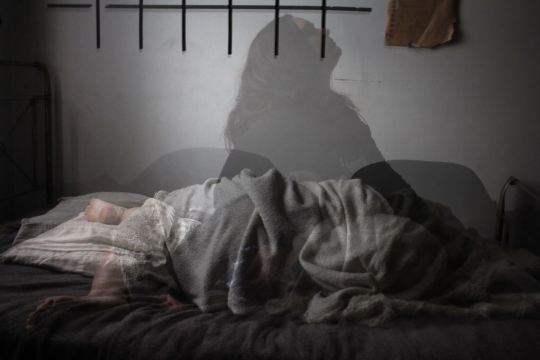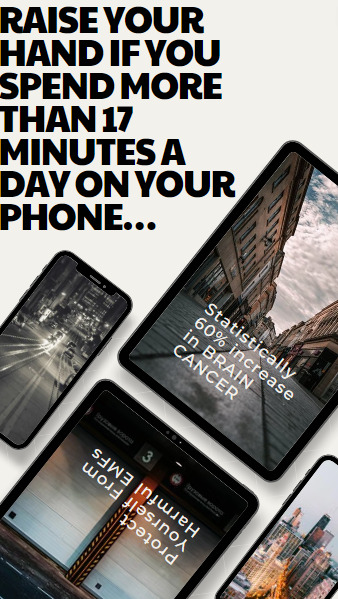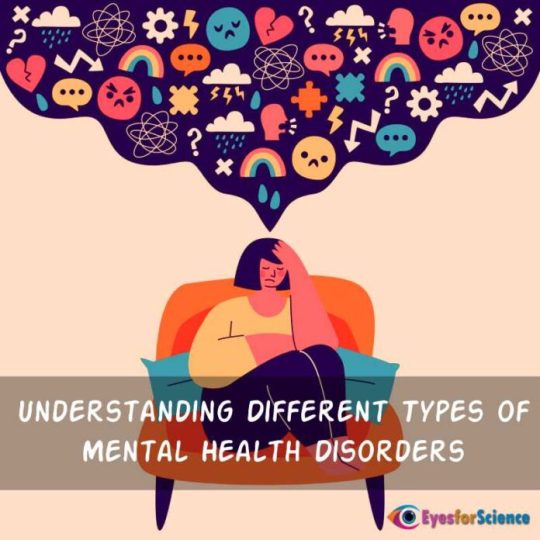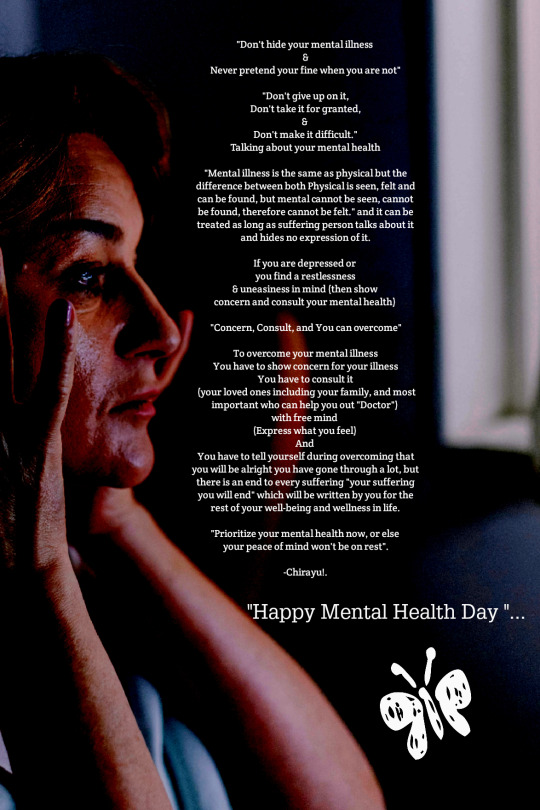#mental health awareness articles
Video
Homeless Homicides Are On the Rise
The rising number of unhoused people being murdered in the United States is a grim and urgent reminder of our country’s housing crisis.
https://www.thenation.com/homeless-homicides-are-on-the-rise/
#tiktok#homelessness#homeless#mental health awareness#mental health#systemic oppression#systemic problems#systemic violence#housing crisis#housing crash#housing#state violence#article
394 notes
·
View notes
Text
Our understanding of mental illness and personality disorder has been sorely only half-complete, since the awareness campaigns of the mid 2010's, I suppose.
A personality disorder is called a disorder because it causes disorder intrapersonally and/or interpersonally. And yes, that does include abuse. Behaving like a shitty person is part of what it means to be disordered. I'm sorry, that's just what it is. Some of you are just (understandably) predisposed (possibly due to this very same disorder) to taking these sorts of things personally and being defensive.
Similarly, there are mental illnesses which CAN cause people to commit crimes, and it can cause them to commit crimes in such a context where they CANNOT be held accountable. The solution there is not to have people with similar disorders and illnesses, who have claimed it to be a central part of their identity, to condemn the offender and distance themselves. Like, you don't HAVE to do that. You don't HAVE to either make excuses for someone, or distance yourself. You don't HAVE to throw anyone under the bus. You have no moral obligation to throw anyone under the bus. You can just... NOT MAKE THINGS ABOUT YOU PERSONALLY.
You can recognize the spectrum of symptoms (some of which, destructive and cause trauma to other people) without capitulating to a wider societal tendency to hold you personally accountable for the actions of literally everyone else within your group. That is buying into the exact same oppressive system. Never follow the logic of your oppressors.
I think we've just been stuck on repeating dogmatic truisms that aren't based on anything factual, empirical, or aligned with the current academic understanding of psychology and criminology.
It seems like people's compassion, patience, empathy and understanding entirely runs out the moment that a disorder or illness causes bad behavior, in much the same way that people have this petulant immature expectation of the perfect victim of things such as violence, structural violence, and other types of abuse.
I hate to have to be the one to say it but, "bad" people also deserve unconditional compassion, whatever that might actually look like in practice. It's the only way to make things better. Like, I'm sorry, but the science has shown over and over again that negative reinforcement does not work in the long term. Only positive reinforcement.
Obsession with labels of every kind, and abused in every conceivable way to find some shortcut around understanding what actually causes the ills of our society, over and over and over just drives. me. up the wall.
2 notes
·
View notes
Text
We talk a lot about how much the climate surrounding gender and sexuality has shifted since mcr first came onto the scene, but i think one thing that goes underdiscussed is how drastically different the attitude towards mental health is
#i was just thinking about it because i saw another old article that talked about the quote middle class angst of mcr audiences#and how the idea that mental health was something for dramatic attention seeking teen girls and self indulgent upper middle class people#because they dont have real problems and depression and self harm is for weak people who just need to get over themselves#mental health awareness now is still not great but at least its no longer ground breaking to acknowledge depression as real#anyway. i think bands like mcr talking about that kind of thing openly actually helped shift the wider attitude#op
12 notes
·
View notes
Text

The shocking not-so-shocking twist of the fucking season:
#what a shocker#homelessness#affordable housing#what a hot take#mental health awareness#drugs mention#slow clap for this article#we live in a society#good job 'researchers'#important#not anime#i am just flabbergasted#honestly
17 notes
·
View notes
Text
Photo by Megan te Boekhorst on Unsplash
It is almost 4AM and I am still up and wide awake. I waited too long to take my nighttime meds to make me sleepy because my alarm is set for 7AM to get up and start the process of getting ready for work after my morning coffee. If I take my meds now, I might not wake up when my alarm goes off or I will be too groggy to be alert and function at work.
To…

View On WordPress
#TeamNoSleep#Anti-Depressants#Anxiety#Bad Memory#Bipolar#Bipolar Depression#Bipolar Disorder#Bipolar Mania#Club Early Bird#Co-workers#Depression#Disorganization#Family#Feeling on Edge#Forgetful#Insomnia#Mental Health#Mental Health Articles#Mental Health Awareness#Mental Health Blog#Mental Illness#Mentally Numb#Moving#Numb#Office Manager#Packing to Move#Post Concussion Syndrome#Psych Meds#Sleep#Workers with disabilities
1 note
·
View note
Text

Raise your hand if you spend more than 17 minutes a day on your phone…
And even if you’re not using your phone, it’s a known fact that your cell phone puts out a steady stream of EMF radiation…
Whether you’re actively using it or not.
(Raise your hand if your phone is in your back pocket right now…)
#mentalawareness#fitness#health#emf#mobileradiation#awareness#mentalfitness#socialfitness#social#healthissues#safety#safetytips#self realization#compassion#acceptance#social awareness#article#mental health#positive mental attitude#therapy#mental illness#healthandsafety#health and wellness#healthcare#health & fitness#wellness#health tips
0 notes
Text
Understanding Different Types of Mental Health Disorders

In the intricate tapestry of human experience, mental health is a crucial thread that weaves through the fabric of our lives. It’s a delicate balance, easily disrupted by various factors. Mental health disorders, a term encompassing a spectrum of conditions, affect millions of people worldwide. In this exploration, we delve into the various types of mental health disorders, seeking to shed light on the complexities and challenges that individuals face.
#why is mental health important#mental health awareness#mental health articles#mental health issues#Mental Health#Mental Health Disorders#Types of Mental Health#Anxiety Disorders#Bipolar Disorder#Eating Disorders
0 notes
Text
Article I: Letter To Those I Didn't Know Were Listening
The internet has made the world a much smaller place and I believe it's time to come clean. I have been struggling for a very long time, but this past year the suffering became unbearable. I have been overwhelmed by the amount of people that have reached out since expressing myself through words.
My mind has been lying to me that I am worthless and don't deserve a place in this world. I nearly lost the battle in July, but have been fighting to get back to the life filled with love that I did not realize I had.
I am so thankful for everyone that has reached out and proven the lies to myself delusional. I am forever grateful for the compassion, grace, and love to which I have been greeted.
#mental health#mental health awareness#mental illness#suicideawareness#fypage#love#words words words#spilled words#spilled ink#prose#article#Articles by Sydney
0 notes
Text
Have you ever felt a pit in your stomach that you can't seem to get rid of?
I wrote an article about it.
#world events#social media#mental health#mental health awareness#article#research/opinion article#the pit in your stomach#tiktok#medium
1 note
·
View note
Text
Afternoon Reading
I found this article while browsing the web today … Check it out
www.thisiscalmer.com/blog/7-books-to-read-if-you-need-a-mental-health-boost

View On WordPress
0 notes
Text
Elder Home Care vs. ABI Waiver Recovery Services: Understanding the Major Differences
Elder Home Care vs. ABI Waiver Recovery Services: Understanding the Major Differences
Post image
Home and community rehabilitation programs for brain injury survivors are relatively new additions to the healthcare industry. This novelty has led many people to mistakenly believe that the elder care model, which has been established for a longer time, is the standard format for brain injury recovery and rehabilitation services. However, these two types of care have vastly different goals and approaches. The lack of awareness about the unique nature of home and community rehabilitation programs for brain injury survivors may present challenges for home care providers, as people might confuse the services being offered. It is essential for both care providers and clients to understand the distinct objectives and methods of each care model, in order to ensure appropriate care and support for individuals with varying needs, and to avoid misconceptions that could hinder the progress and success of rehabilitation efforts. When it comes to home and community support care services, it's essential to know the distinctions between the various care options available. Elder home care and services for Traumatic Brain Injury (TBI), Stroke Recovery, and Acquired Brain Injury (ABI) waiver programs are often misunderstood, with people assuming they are similar in nature. In this article, we will shed light on the major differences between these services. ABI Resources is a reputable organization that provides exceptional support to individuals and families in collaboration with various government agencies and community service providers, including the Connecticut Department of Social Services DSS, COU Community Options, the Connecticut Department of Mental Health and Addiction Services DMHAS, Connecticut Community Care CCC CCCI Southwestern Connecticut Area on Aging SWCAA, Western Connecticut Area on Aging WCAAA, Allied Community Resources ACR, Access Health, and United Services. ABI Resources collaborates care with renowned institutions such as UCONN, Yale, and Hartford. As a community care and supported living provider, ABI Resources is dedicated to offering high-quality and personalized care to enhance the lives of those it serves. Medicaid MFP Money Follows the person program / ABI Waiver Program / PCA waiver.
Understanding ILST Providers: What to Expect and How They Make a Difference
Explore the role of ILST providers in helping individuals with brain injuries regain independence, and learn why families trust ABI Resources
The Benefits of Working with an ABI Resources Independent Living Skills Trainer (ILST)
Discover the benefits of ABI Resources' Independent Living Skills Trainers (ILST) for brain injury recovery, offering personalized support, skill development, and emotional encouragement. Transform lives today.
Finding a Reliable and Trustworthy ILST Provider: Key Factors to Consider
#Elder Home Care vs. ABI Waiver Recovery Services: Understanding the Major Differences#https://www.ctbraininjury.com/post/elder-home-care-vs-mfp-abi-waiver-major-differences#Post image#Home and community rehabilitation programs for brain injury survivors are relatively new additions to the healthcare industry. This novelty#which has been established for a longer time#is the standard format for brain injury recovery and rehabilitation services. However#these two types of care have vastly different goals and approaches. The lack of awareness about the unique nature of home and community reh#as people might confuse the services being offered. It is essential for both care providers and clients to understand the distinct objectiv#in order to ensure appropriate care and support for individuals with varying needs#and to avoid misconceptions that could hinder the progress and success of rehabilitation efforts. When it comes to home and community suppo#it's essential to know the distinctions between the various care options available. Elder home care and services for Traumatic Brain Injury#Stroke Recovery#and Acquired Brain Injury (ABI) waiver programs are often misunderstood#with people assuming they are similar in nature. In this article#we will shed light on the major differences between these services. ABI Resources is a reputable organization that provides exceptional sup#including the Connecticut Department of Social Services DSS#COU Community Options#the Connecticut Department of Mental Health and Addiction Services DMHAS#Connecticut Community Care CCC CCCI Southwestern Connecticut Area on Aging SWCAA#Western Connecticut Area on Aging WCAAA#Allied Community Resources ACR#Access Health#and United Services. ABI Resources collaborates care with renowned institutions such as UCONN#Yale#and Hartford. As a community care and supported living provider#ABI Resources is dedicated to offering high-quality and personalized care to enhance the lives of those it serves. Medicaid MFP Money Follo#Understanding ILST Providers: What to Expect and How They Make a Difference#Explore the role of ILST providers in helping individuals with brain injuries regain independence#and learn why families trust ABI Resources#https://www.ctbraininjury.com/post/understanding-ilst-providers-expect-and-how-they-make-a-difference
0 notes
Text
Please, if you can, take a moment to read and share this because I feel like I'm screaming underwater.
NPD (Narcissistic Personality Disorder) stigma is rampant right now, and seems to be getting progressively worse. Everyone is using it as a buzzword in the worst ways possible, spreading misinformation and hatred against a real disorder.
I could go on a long time about how this happened, why it's factually incorrect (and what the disorder actually IS), why it's harmful, and the changes I'd like to see. But to keep this concise, I'll simply link to a few posts under the cut for further reading.
The point of this post is a plea. Please help stop the spread of stigma. Even in mental health communities, even around others with personality disorders, in neurodivergent "safe" spaces, other communities I thought people would be supportive in (e.g. trans support groups, progressive spaces in general), it keeps coming up. So I'm willing to bet that a lot of people on this site need to see this.
Because it's so hard to exist in this world.
My disorder already makes me feel as if I'm worthless and unlovable, like there's something inherently wrong and damaged about me. And it's so much harder to fight that and heal when my daily life consists of:
Laughing and spending time with my friends, doing my utmost best to connect and stay present and focused on them, trying to let my guards down and be real and believe I'm lovable- when suddenly they throw out the word "narcissist" to describe horrible people or someone they hate, or the conversation turns to how evil "people with narcissistic personality disorder" are. (Seriously, you don't know which of your friends might have NPD and feels like shit when you say those things & now knows that you'd hate them if you knew.)
Trying to look up "mental health positivity for people with npd", "mental health positivity cluster bs", only to find a) none of that, and b) more of the same old vile shit that makes me feel terrible about myself.
Having a hard time (which is constant at this point) and trying to look up resources for myself, only to again, find the same stigma. And no resources.
Not having any clue how to help myself, because even the mental health field is spitting so much vitriol at people with DISORDERS (who they're supposed to be helping!) that there's no solid research or therapy programs for people like me.
Losing close friends when they find out, despite us having had a good relationship before, and them KNOWING me and knowing that I'm not like the trending image of pwNPD. Because now they only see me through the lens of stigma and misinformation.
Hearing the same stigma come up literally wherever I go. Clubs. Meetings. Any online space. At the bus stop. At the mall. At a restaurant. At work. Buzzword of the year that everyone loooves loudly throwing around with their friends or over the phone. Feels awesome for me, makes my day so much better/s
I could go on for a long time, but I'm scared no one will read/rb this if it gets too much longer.
So please. Stop using the word "narcissist" as a synonym for "abusive".
Stop bringing up people you hate who you believe to have NPD because of a stigmatizing article full of misinformation whenever someone with actual NPD opens their mouth. (Imagine if people did that with any other disorder! "Hey, I'm autistic." "Oh... my old roommate screamed at me whenever I made noise around him, and didn't understand my needs, which seems like sensory overload and difficulty with social cues. He was definitely autistic. But as long as you're self-aware and always restraining your innate desire to be an abusive asshole, you're okay I guess, maybe." ...See how offensive and ignorant that is?)
Stop preventing healthcare for people with a disorder just because it's trendy to use us as a scapegoat.
If you got this far, thank you for reading, and please share this if you can. Further reading is under the cut.
NPD Criteria, re-written by someone who actually has NPD
Stigma in the DSM
Common perception of the DSM criteria vs how someone may actually experience them (Keep in mind that this is the way I personally experience these symptoms, and that presentation can vary a lot between individuals)
"Idk, the stigma is right though, because I've known a lot of people with NPD who are jerks, so I'm going to continue to support the blockage of treatment for this condition."
(All of these were written by me, because I didn't want to link to other folks' posts without permission, but if you want to add your own links in reblogs or replies please feel free <3)
#actuallynpd#signal boost#actuallyautistic#mental health awareness#narcissistic personality disorder#people also need to realize that mental health professionals aren't immune from bias#(it really shouldn't come as a shock that the mental health field has a longstanding pattern of misunderstanding and mistreating ppl who ar#mentally ill or otherwise ND)#the first therapist i brought up NPD to like. literally pulled out the DSM bc she could barely remember the criteria. then said that there'#no way I have it because I have low self-esteem lmaoooooo#anyway throwback to being at work and chatting with a co-worker. and the conversation turning to mental health. and him saying that#he tries to stay informed and be aware and supportive of mental health conditions & that he doesn't want to be ignorant or spread harmful#misinformation. and then i mentioned that i do a lot of research into mental health stuff and i listed a bunch of things. which included#several personality disorders. one of which was NPD.#and after listening to my whole ass list he zeroed in on the NPD and immediately started talking about how narcissists are abusive and#he knew someone who had NPD and how the person who had it had an addiction and died from the addiction in a horrible way and he#was glad he did#fun times#or when i decided to be vulnerable and talk abt my self-criticism/self-hatred bc i knew my friends also struggled w that and i wanted to#support them by sharing my own coping methods. and they both(separately!) started picking and prodding at my npd through the lens of stigma#bc i'd recently opened up to them abt having it. they recognized self-hatred as a symptom and still jumped on me for it. despite me#trying to share hurt vulnerable parts of myself to help them and connect with them.#again..... fun times
7K notes
·
View notes
Text
Found this article interesting to read, particularly when I think back to how I often felt as a teenager growing up.
#Mental Health#Introvert#Introversion#Highly Sensitive Person#HSP#Friends#Reading#Article#Psychology#Understanding#Awareness
0 notes
Text
Do we change for others?
People can change for others, but it ultimately depends on the individual and their motivations for changing.
Some people may change to please others or meet their expectations, while others may change because they genuinely want to improve themselves or their relationship with the other person.
Changing for others can be positive or negative depending on the situation. In some cases, it may be…
View On WordPress
#advice#appreciation#article#awareness#behaviour#behavioural#behavioural therapy#blogger#blogging#change#daily blog#helping relationship#mental health#psychological#psychology#psychology explained#relationship#self awareness#selflove#serious relationship
0 notes
Text
Happy Mental Health Day

View On WordPress
#Amwriting#Anxiety#Article#Blog#care#Depression#depression awareness#Happy Mental Health Day#health care#India#Life#Love#metoo#random thoughts
0 notes
Text
My dear lgbt+ kids,
Can you have a healthy relationship with a narcissist?
Well, if you trust many social media posts, then the answer would be a resounding "No". Narcissistic is - apparently - a synonym for abusive, and of course you can't have a healthy relationship with an abusive partner!
But, well, social media is not always right. A lot of topics get oversimplified, terms get misused and black-or-white thinking is rampant - and "narcissistic means abusive" falls into all three of those pits.
Let's look at it a bit closer: "Abusive" describes a set of behaviors - while narcissistic personality disorder (NPD) describes, well, a personality disorder. It's a mental health condition.
I am not a trained mental health professional, so I'll use a medical source here. According to mayoclinic.org (link to article), symptoms and their intensity may vary from one affected person to the next (just like the exact symptoms and severity of depression or anxiety may vary!). A person with NPD may
have an unreasonably high sense of their own importance
have an excessive need for attention and admiration
have low/no empathy (struggle to understand or care about the feelings of others)
have low self-worth
be easily upset by criticism
struggle with social interactions
have difficulty managing their emotions
experience major problems dealing with stress
And, again just like with other mental health conditions, NPD can negatively affect the person in a lot of areas of life. For example, struggling to manage their emotions and stress levels may make it hard for them to hold down a job and cause financial worries, or they may avoid participating in social events, which may lead to them becoming isolated and depressed etc. And yes, of course some symptoms may also lead to problems in romantic relationships.
Therapy for NPD usually centers around talk therapy, with the goal of helping the person to better understand and manage their emotions, to learn how to cope with self-worth issues, and to create/maintain healthy fulfilling relationships and communication with the people around them.
Now, you can look at all this and go "See? The social media posts are right! They are self-centered, have no empathy and are easily upset! That's abusive!" - but that'd be jumping to conclusions. None of those things are behaviors.
An autistic person may also easily get upset and they may also feel low empathy. So could a person with major depression. Yet, we do not treat "autistic" or "depressed" as a synonym for abusive. We do not assume that their symptoms will definitely lead to abusive behavior. So, why would that be different for people with NPD?
Am I saying no person with NPD has ever been abusive? Of course not. That'd be black-or-white thinking, too. What I am saying is: People with NPD are people. And people can show abusive behavior or they can not.
If someone who easily feels upset hits you, that's abuse... but hitting would be abuse, even if they didn't feel easily upset. A partner with or without NPD shouldn't be hitting you. If someone with no empathy degrades and insults you, that's abusive... but that would be abuse regardless of their ability to feel empathy. A partner with or without NPD shouldn't be degrading and insulting you.
A person could have NPD and behave abusive - but "some people are X and Y, so all people who are X must be Y" is a flawed logic.
So, let's circle back to the beginning: can you have a healthy relationship with a narcissist? Yeah. It will be a relationship with someone who has a mental health condition and that's something to be aware of because mental health conditions do affect everyday life (duh?).
You should set boundaries and take warning signs of abuse seriously - like you should do when you date anyone, regardless of health status.
With all my love,
Your Tumblr Dad
719 notes
·
View notes